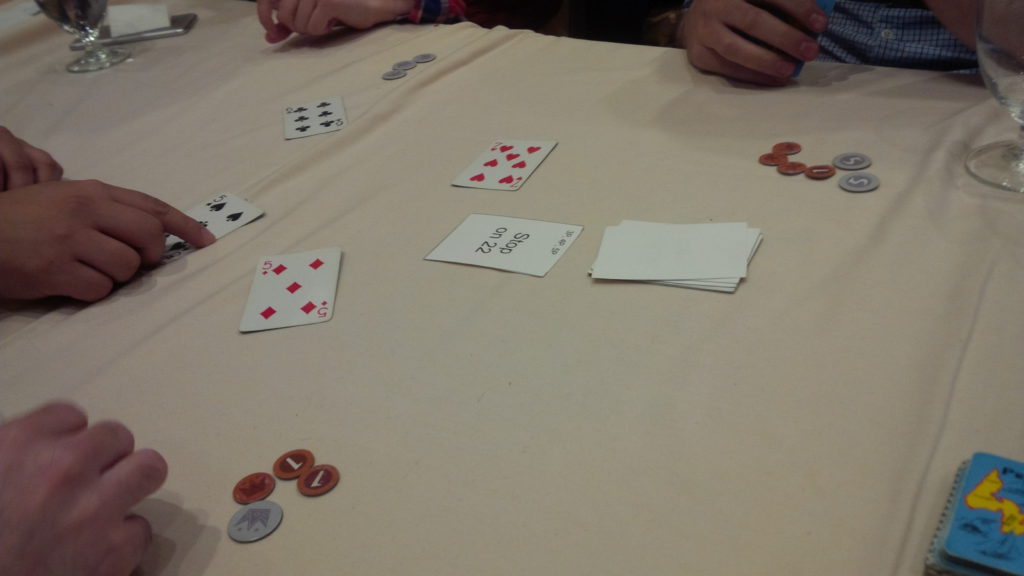Your Game Idea Is Worthless… Until You Do This
“I have this great business idea,” he said.
This was the start of a conversation with a friend of mine. It was something he came up with and wanted to make a reality. He really wanted to leave his day job and start his own business. After brainstorming over 100 different business ideas, this was the one he felt most passionate about.
He then went on in great detail about how it would work and how excited he was about the idea. He imagined it revolutionizing the way that medications and other health products were delivered to customers.
That was three years ago.
So, how is his business doing now you ask?
Well, would you believe that it’s still just an idea sitting in his head waiting to be developed? It never even got off the ground.
Unfortunately, this is all too common. People talk about ideas, but very few put them into action.
But what does this have to do with game design?
Well, actually quite a bit.
You see, every game starts out as an idea. But like anything else, whether it’s a business idea, creative endeavour, or a New Year’s resolution, quite often that’s also where it ends.
Coming up with ideas is the easy part. Taking action and turning this into something is the hard part.
That’s why many of us keep a long list of ideas for things we want to do, but we rarely make a significant dent in this list.
It’s so important to take the time and effort to turn that idea into something tangible. When it comes to a game idea, that means putting together the simplest prototype possible and testing it out.
Even if it looks like this.

The longer your idea just sits there in your head, the less chance you will actually do something with it. It’s even worse if you don’t write it down. If your memory is anything like mine, it will probably be forgotten by the next day (unless it’s an idea I just can’t stop thinking about!).
Put something simple together and try it out. See what works. See what doesn’t. There may be a lot of things not working initially, but that’s okay. This is where you work out the kinks and start to make early improvements.
Then, get it in front of other people.
Start with family, friends, and anyone else willing to give it a try. As it develops, you’ll continue playtesting it with other designers, strangers, and anyone else who doesn’t run away when you pull out the box. ?
One of the biggest concerns that new designers have (including me when I was starting out) is having their idea stolen. I mention this often when people ask about getting into the hobby, but it’s something important I feel I need to continue to talk about to help new designers move forward and not get stuck in such an early stage.
Getting your game playtested by others is so crucial for getting valuable feedback to improve your game. This means getting it in front of as many people as possible, particularly other game designers and your core audience.
If you’re afraid to play your game with others, your game will not improve. At least not to the point where it’s going to be able to compete against all the other great games on the market.
Other game designers have their own games they’re working on. They have enough to keep them busy without needing to steal ideas from others. Besides, most people love their own ideas best and would prefer to focus on something they came up with themselves.
Most other people will never make their own game. They may enjoy playing games a lot, but extremely few of them will ever get into game design. Some may like the idea of creating their own game but aren’t willing to put in the time and effort to make something themselves. And that’s totally fine. Not everybody can be a game designer. But that’s also good for you because you don’t have to worry about them stealing your ideas.
Finally, there’s your reputation at stake. The game design community is a small and tight-knit one. You’d have a hard time finding playtesters and publishers interested in your game if you were known as a thief.
Getting started is always the hardest part of doing anything. Once you get started, it always gets easier and you wonder why you didn’t start sooner.
Don’t just be a thinker.
Be a woman of action.
Or a man of action.
Or a [insert your preferred pronoun here] of action.
So, write that idea down on paper and create your first simple prototype.
Your future fans are waiting.

One comment
Emily
You’re so right about not letting the fear of your idea being stolen get in the way of play testing your concept! I had such a huge fear of my game name being stolen at first that I didn’t tell anyone the name, and event went so far as to create an NDA. That was totally unnecessary. But if you’re paranoid like I was, you could always write your idea down (name and all) in a letter, send it to yourself, keeping that letter sealed. That way if you ever need to prove you had the concept first, you have your evidence.